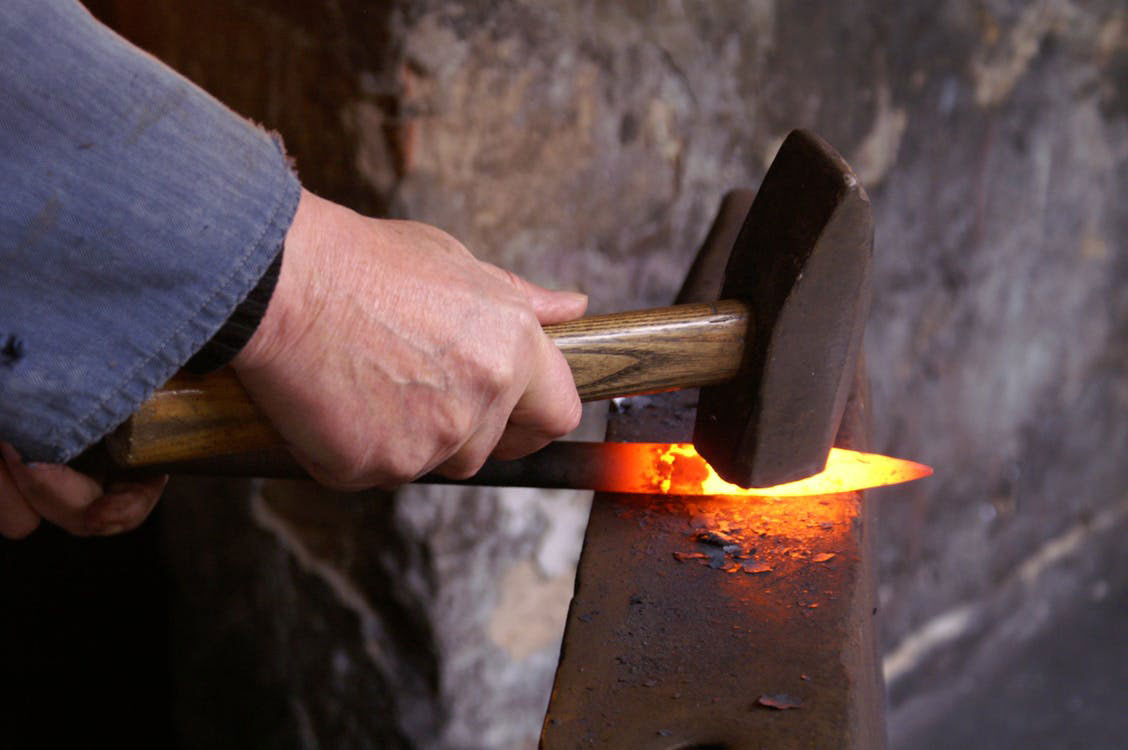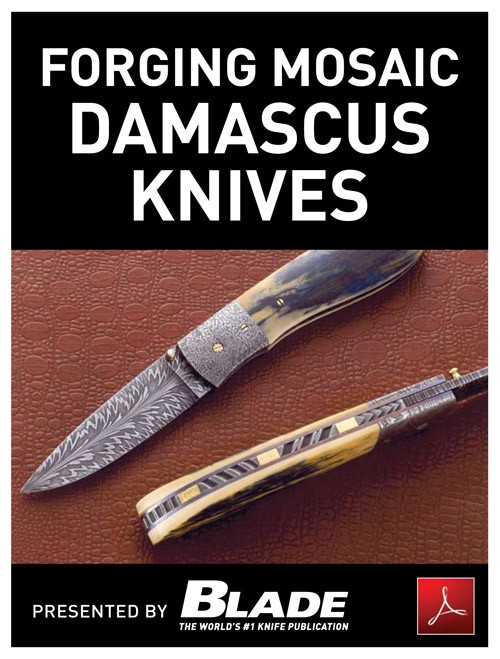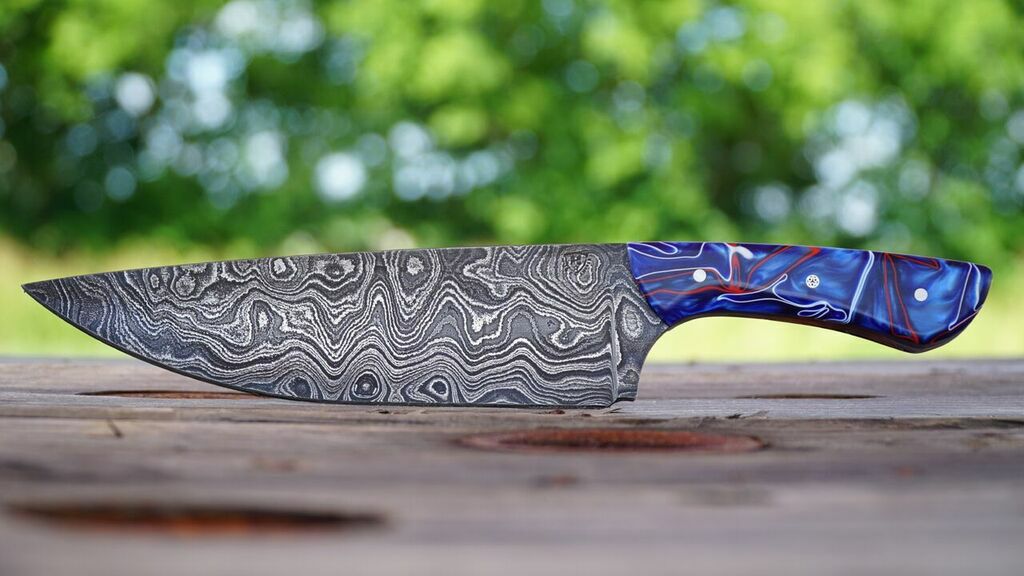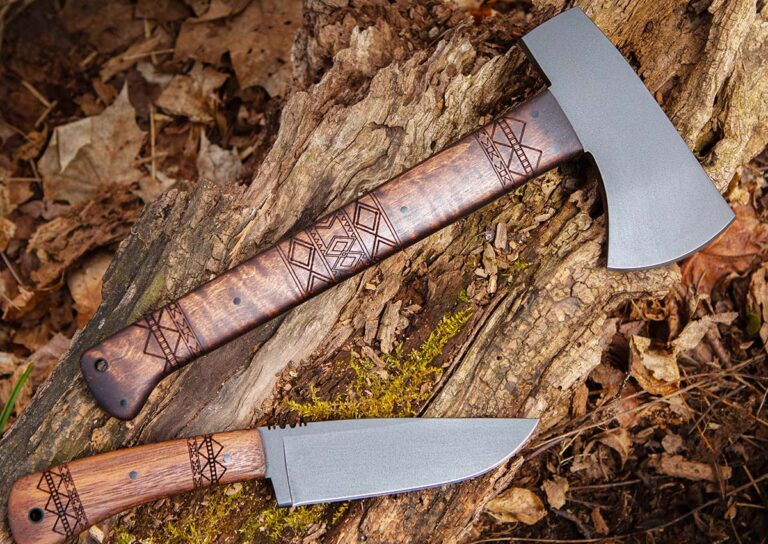
How two U.S. knifemakers successfully transitioned from home shop to factory.
Ever wonder why some custom knifemakers decide to take the leap from the rarified air of being a sole artisan to the crowded arena of factory fare? Sometimes the answer is easy. For instance, in 1999, BLADE Magazine Cutlery Hall-of-Fame® member Chris Reeve switched his custom shop over to a micro-manufacturing outfit in Boise, Idaho, simply because he couldn’t supply enough of his popular Sebenzas to a thirsty knife-buying public. That one move catapulted Chris Reeve Knives (page 26) into a successful American manufacturer of folders and fixed blades.
We thought the practice of switching from shop-to-factory, and the reasoning behind such a move, to be an interesting one, so we sought out a couple of like-minded makers from two different genres to bring you an inside look at such a move.
Long Road Of American Knife Manufacturing
Daniel Winkler never planned on producing factory knives, but when a government contract to aid the troops fighting in the Middle East came along, his love of country won out. He had, however, made a name for himself long before that. Winkler built his first knife in high school shop class and still has it among the knives he has archived. In the ensuing years he began gaining popularity among members of the black-powder and knifemaking communities. In the late 1980s he teamed up with partner Karen Shook, whose sheaths greatly complement his custom period knives to this day. In 1992 he forged blades for the hit movie The Last of the Mohicans starring Daniel Day-Lewis, which enhanced Winkler’s popularity even more.
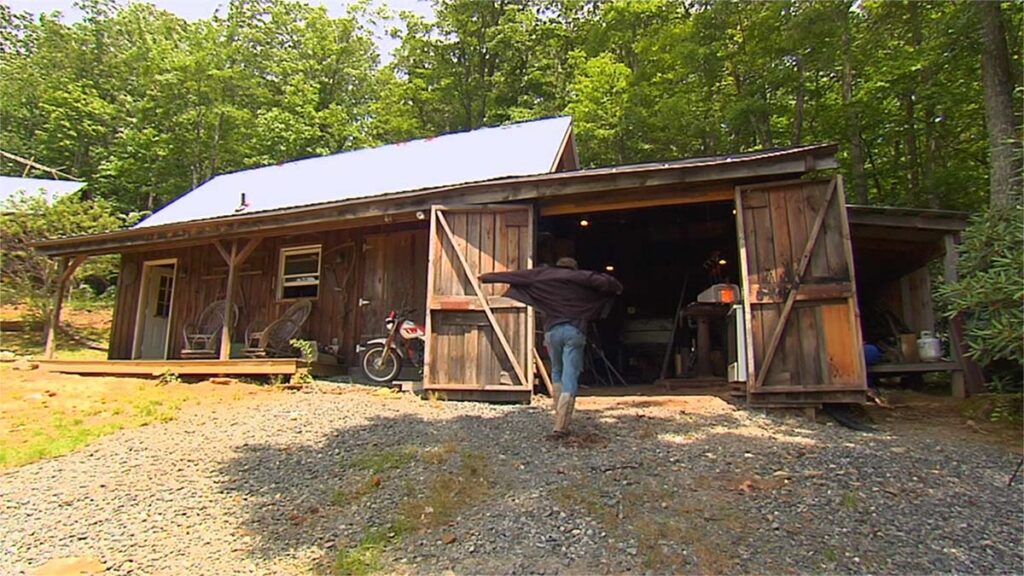
Simply stated, Daniel Winkler is more than a knifemaker, he’s an institution. But it was a long road with a lot of steps along the way. “My first shop was in the hall of my house. I would clamp knives to the stairs and file them to shape,” he recalls. “I graduated to a garage and bought a 1-by-42-inch belt sander. My first forge was made from a truck wheel and a vacuum cleaner. I used charcoal and a piece of railroad rail for an anvil. I still have that anvil, too.” Winkler says his biggest challenge during those early days was “a lack of time, as I had to work a full-time job—and mostly a lack of practical knowledge.” As his popularity grew so did his equipment and capabilities as a master forger, but that would bring change as well.
“I never really wanted to make factory knives,” Winkler opines. “Back in the mid-2000s I was contacted by members of a Special Operations group. They were not happy with the edged equipment they were getting and asked if I would help them get better designed and higher functioning equipment. Initially, I was going to help with the design and development and contract another manufacturer to make the tools. What I found was other people wanted to do things their way and not adapt their manufacturing methods to how I wanted operations done.
“Karen and I discussed the situation and decided whether we were going to be involved with making edged equipment that could very realistically mean life or death based on the performance of the equipment. We decided that no compromise was worth accepting, so we started our own limited production company. We called it Winkler Knives II since we were still making our hand-forged pieces. We successfully made the requested equipment, and [Winkler Knives II] started growing by word of mouth in the military community. As we grew in professional circles, the public with an interest in Tier-1-level military uses found us. Our involvement was verified in a book written by a Navy SEAL and the Sunday edition of The New York Times. Business took a big leap after that.”
Making The Leap Into Knife Manufacturing
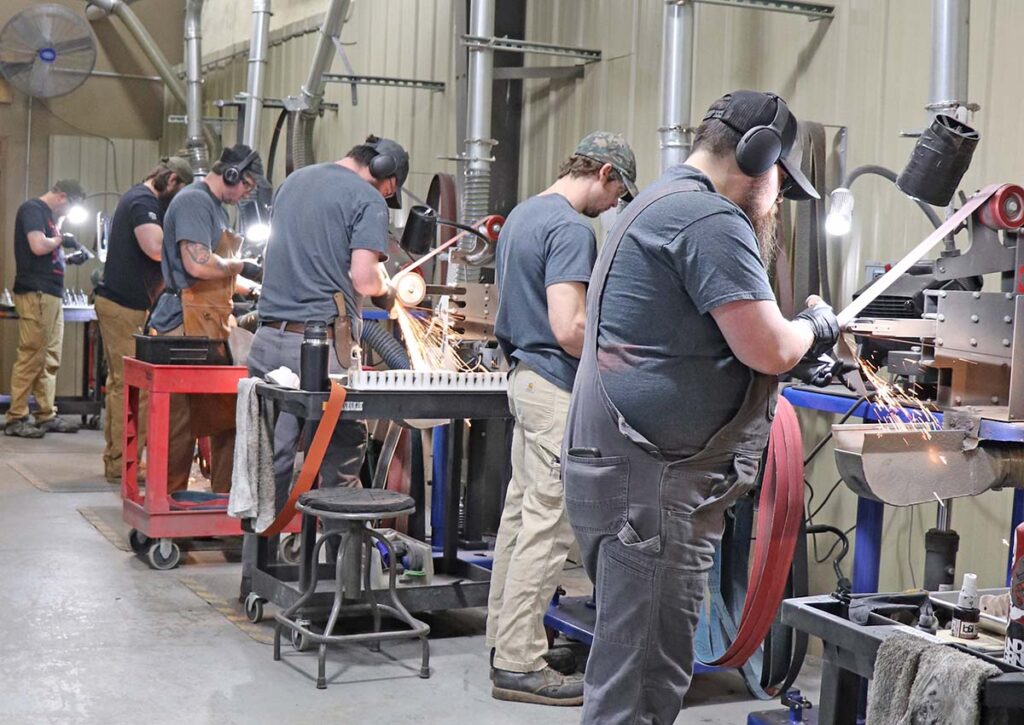
“My first shop was my one-man forging/grinding shop. I hired two part-time staff to assist in handling it. It was a very tight space,” Daniel notes. “From here I added additional grinders and rented a small space in a warehouse. I did the steel grinding and heat treating while Karen worked on finishing. The first models were two Combat/Breaching Hatchets—one for Naval Special Warfare and another for Army Special Operations. That was in 2004-2005.”
Today Winkler Knives has exploded in size to a 35,000-square-foot facility with one part-time and 28 full-time employees. Daniel credits buying a water jet to cut production costs, hiring the right people, and creating an environment for lasting and satisfying jobs.
“I have a rule we adhere to,” he observes. “Any changes we make must make the product better in performance and/or quality, and make the operation safer for our employees.” It is a dictate that continues to make Winkler Knives a mainstay in the business of all that cuts.
Paying Dues
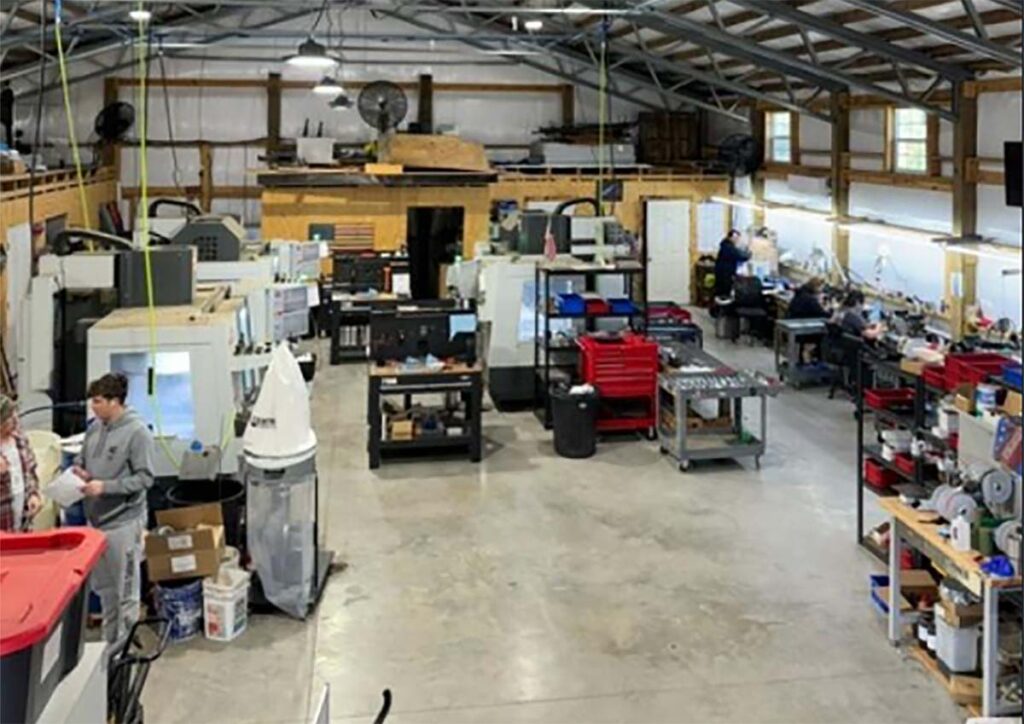
United States Marine Corps veteran and devoted outdoorsman Jonathan McNees of Vernon, Alabama, has always been a knife fan, and when he got drawn into the world of custom knifemaking on the internet he was hooked for good. “I started making knives in 2008 after discovering online forums where people were discussing making knives in their personal garages and the like. Before that,” he remembers, “I really had no idea people were doing that—not at that level, at least.” Finding some brands he’d never seen before, like Strider Knives, led him to locating the forums, he added.
“My first shop was a 400-square-foot pole barn in my backyard that started with an extension cord run from the house to power it,” McNees reveals. “I cobbled together my first 2-by-72 grinder using some ‘no weld’ grinder plans I picked up. It was the epitome of a ‘Frankengrinder’—a bench grinder for a motor and a plastic lawnmower wheel as a drive wheel, but it got the job done. I ground hundreds of knives on it before I bought a real grinder. The most difficult thing in the early days, aside from learning the hand-to-eye coordination on the technical stuff, was getting my name out there and building a reputation. I had to be aware of my place in the food chain and pay my dues.
“My breakthrough moment to switch to factory knives came from looking at my work from a business perspective. I always tried to work fast but no matter how fast I got, the business was never going to scale with me building customs by myself. I realized I not only wanted to be a craftsman but I also wanted to build a business. I went to production in 2019. I realized I couldn’t make the kind of impact in the industry I wanted to by just flying solo doing customs. I was probably putting out between 200-to-300 knives a year as a custom knifemaker.
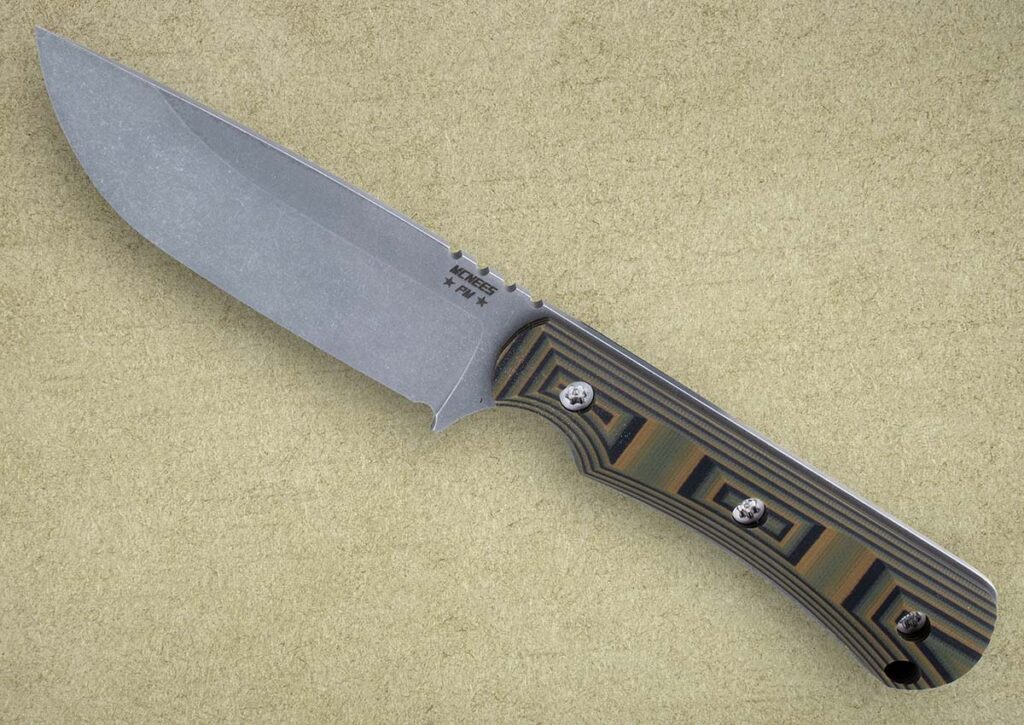
“The first step into production was using U.S. OEM shops to do all the machining and grinding work,” he continues. “I hired two people—one primarily ran our laser, which we did non-knife projects with to help with cash flow, and the other I taught to do all the hand fitting and assembly. I helped where needed on the production but mostly continued to make customs during this phase.” All this continued to be done in the 400-square-foot shop.
“One big step forward came in 2021 when we moved and built a 3,500-square-foot shop and bought our first CNC mill,” Jonathan states. “Since then, we’re up to seven full-time employees plus myself, and my wife has come to work full time in the business for a total of nine. Our bread and butter is our framelock tactical folders, but we also have a good start on a fixed-blade line with three new models added this year.
“We should finish with 3,000-to-4,000 knives produced this year, but our biggest recent accomplishment is a great increase in production numbers thanks to getting a lot of processes dialed in and getting a really solid team in place,” he observes. “We have a new folder coming out next year that is based off one of my most popular custom designs, so we’re really excited about that. We plan to continue to scale and grow as much as we can. We love this industry and want to provide a positive influence.”
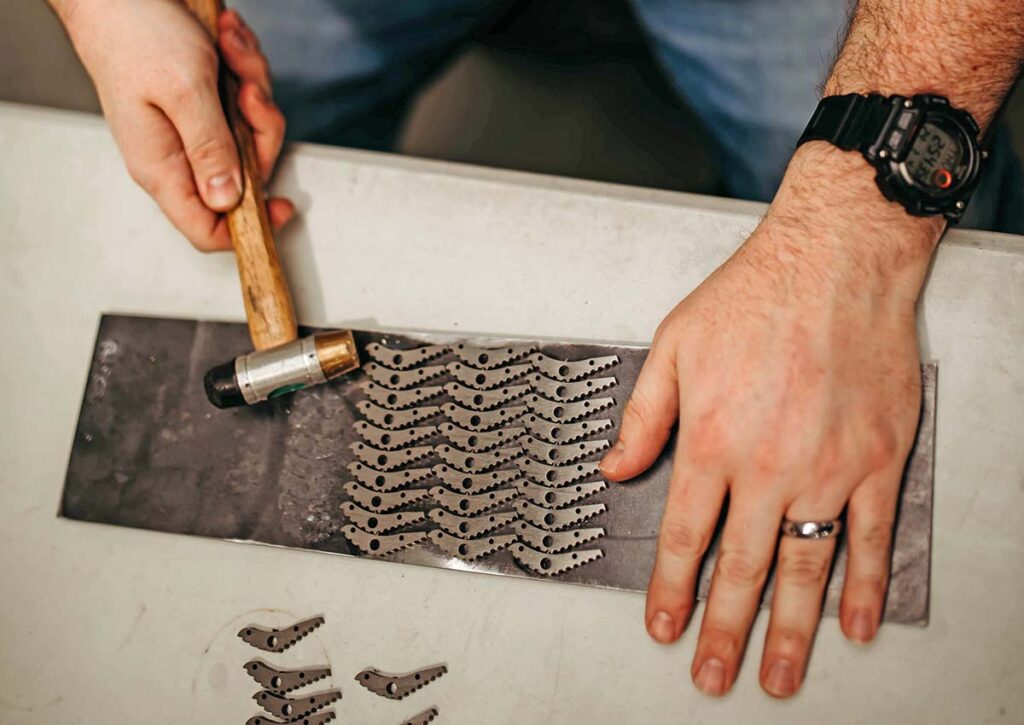
Daniel and Jonathan are two custom knifemakers who made the leap to factory production for two different yet legitimate reasons, but both share the common commitment of making knives. They reflect the American dream in action and have done themselves proud.
More On Knifemaking:
- D.I.Y. POWER HAMMER: DO YOU REALLY NEED ONE?
- STAINLESS DAMASCUS: CHALLENGES IN FORGING
- STROPPING: WHAT IT IS AND HOW IT’S ACCOMPLISHED
- DIY ENGRAVING VISE OR BLOCK
 NEXT STEP: Download Your Free KNIFE GUIDE Issue of BLADE Magazine
NEXT STEP: Download Your Free KNIFE GUIDE Issue of BLADE Magazine
BLADE’s annual Knife Guide Issue features the newest knives and sharpeners, plus knife and axe reviews, knife sheaths, kit knives and a Knife Industry Directory.Get your FREE digital PDF instant download of the annual Knife Guide. No, really! We will email it to you right now when you subscribe to the BLADE email newsletter.


